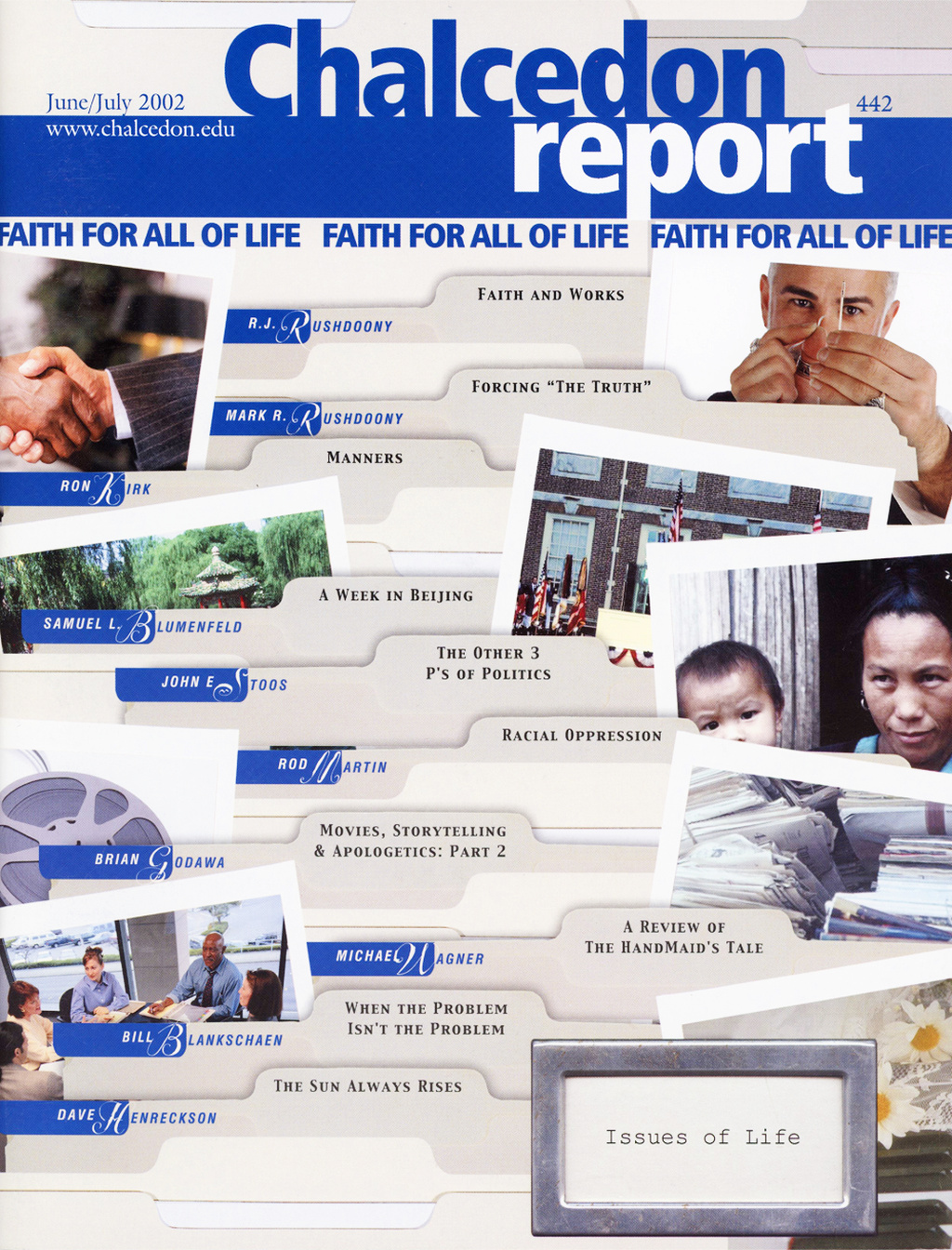
Magazine Issue
June/July 2002 Articles:
Faith and Works

- R. J. Rushdoony
Forcing "The Truth"

- Mark R. Rushdoony
Manners
- Ron Kirk
A Week in Beijing
- Samuel L. Blumenfeld
The Other "Three P's" of Politics
- John Stoos
Our Own House Out of Order: Racial Oppression and Its Defenders
- Rod D. Martin
Movies, Storytelling and Apologetics (Part II)
- Brian Godawa
Atwood vs. Atavism? The Handmaid's Tale and Its Flagrant Misrepresentation of the Christian Right
- Michael Wagner
When the Problem Isn't the Problem
- William Blankschaen
The Sun Always Rises
- David P. Henreckson
Christian Economics: A Foundation in Law (Part IV)
- Ian Hodge